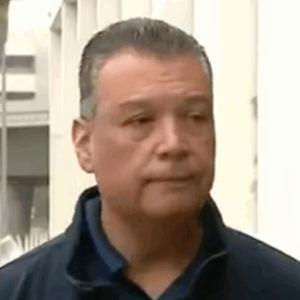After more than thirty years living with Parkinson’s disease, acclaimed actor and activist Michael J. Fox has issued one of his most forthright health updates to date. In a recent interview, the 62-year-old entertainer—who first disclosed his diagnosis in 1998—acknowledged that managing his symptoms has grown increasingly challenging. Yet even as Parkinson’s continues to reshape his life, Fox’s unyielding determination to raise awareness and fund cutting-edge research remains as resolute as ever.
1. From Screen Star to Reluctant Advocate: The Early Years
Diagnosis at the Height of Fame
In 1991, at age 29, Michael J. Fox was at the zenith of his acting career. Best known for his roles in Family Ties and the Back to the Future trilogy, Fox had become one of Hollywood’s most bankable stars. Behind the scenes, however, he wrestled with insidious tremors and stiffness—symptoms that would soon lead to a life-altering diagnosis. In October of that year, only weeks after marrying his wife Tracy Pollan, Fox received the news that he had early-onset Parkinson’s disease, a progressive neurological disorder characterized by degeneration of the brain’s motor control centers.
Secrecy and Internal Struggle
For several years, Fox chose to keep his Parkinson’s diagnosis private. Concerned about jeopardizing his career and voicing fears that audiences would not accept his condition, he continued to work tirelessly. Balancing new medications and intensive physical therapy, he took on projects that allowed him to accommodate his symptoms—sometimes slipping in wheelchair shots or seated roles. It was only in 1998, after much deliberation and consultations with family and colleagues, that Fox went public. His disclosure marked a pivotal moment, transforming him from Hollywood heartthrob into one of the most visible faces of Parkinson’s advocacy.
2. Founding the Michael J. Fox Foundation: A Global Force for Research
Establishing a Dedicated Organization
Shortly after revealing his condition, Fox founded the Michael J. Fox Foundation for Parkinson’s Research (MJFF). With an initial seed fund of $100,000, he set out to accelerate the search for both symptomatic treatments and, ultimately, a cure. Over the ensuing decades, MJFF has grown into the world’s largest nonprofit funder of Parkinson’s research, supporting more than $1.5 billion in studies, clinical trials, and public policy initiatives.
Strategic Focus on Drug Development
From its inception, MJFF prioritized strategies known to expedite therapeutic breakthroughs:
-
Biomarker Discovery: Funding efforts to identify biological markers that signal disease progression or drug efficacy.
-
Targeted Drug Screening: Collaborating with biotech and pharmaceutical companies to test novel compounds in preclinical and clinical settings.
-
Patient Registries and Data Sharing: Launching online platforms, such as Fox Insight, to collect real-world patient experiences and accelerate data-driven research.
By fostering open science and public–private partnerships, the foundation has catalyzed multiple phase I–III trials, including promising immunotherapies and small molecules targeting alpha-synuclein—one of the hallmark proteins implicated in Parkinson’s.
3. Sustained Public Engagement: Speaking Out and Raising Awareness
Media Appearances and Speaking Tours
Over the years, Fox has leveraged his fame to educate millions. From televised fundraisers to major news interviews, he has consistently delivered compelling, empathetic messages about the human toll of Parkinson’s. His Broadway play The Michael J. Fox Show and guest roles on network comedies further broadened his platform, normalizing visible disability and empowering people living with chronic conditions.
Books and Memoirs
Fox’s 2002 autobiography, Lucky Man, offered an unvarnished look at his diagnosis and early advocacy. Subsequent collections—Always Looking Up (2009) and No Time Like the Future (2020)—chronicle both his personal evolution and shifts in the scientific landscape. Through candid reflections and carefully curated optimism, these books have become standard reading for patients, caregivers, and healthcare professionals alike.
4. The Physical Toll: Recent Health Challenges and Surgery
Progression of Symptoms
Despite decades of rigorous exercise regimens, adaptive therapies, and medication adjustments (including levodopa-carbidopa and dopamine agonists), Parkinson’s is relentlessly progressive. Fox has publicly described increased stiffness, bradykinesia (slowed movement), and postural instability. These motor symptoms have complicated everyday tasks—ranging from rising from chairs to maintaining his trademark comedic timing on set.
Spinal Surgery and Recovery
Earlier this year, Fox underwent surgery to remove a benign tumor from his spine. While successful, the procedure necessitated a challenging recovery—marked by weeks of limited mobility, intensive physical rehabilitation, and a series of minor fractures incurred during postoperative falls. He candidly recounted these setbacks in his recent interview, underscoring both the resilience required and the stark reality that “Parkinson’s doesn’t kill you— you die with Parkinson’s.”
5. A Heartfelt Admission: “It’s Getting Tougher”
Context of the Statement
In his latest television interview, Fox paused mid-conversation to reflect on his long battle: “It’s getting tougher.” The admission, delivered with characteristic wry humor and palpable vulnerability, represents perhaps his sincerest acknowledgment of the disease’s relentless advance.
Balancing Optimism with Realism
While Fox has long championed a message of hope—asserting that research breakthroughs are on the horizon—he also recognizes the importance of transparency. By sharing the challenges of mobility, hospitalizations, and cognitive fatigue, he validates the lived experiences of thousands of Parkinson’s patients worldwide. His message reframes resilience not as denial of hardship, but as the capacity to persevere in spite of it.
6. Documenting the Journey: The Upcoming Still Documentary
Film Overview
Fox’s personal and public journey will be chronicled in the forthcoming documentary Still. Commissioned by National Geographic Documentary Films and slated for release later this year, the film promises an intimate portrait of his daily life, advocacy work, and the evolving science of Parkinson’s.
What to Expect
-
Unfiltered Access: Viewers will see Fox at home, during medical appointments, and in moments of candid reflection—capturing tremors, speech changes, and the emotional struggle beneath his public persona.
-
Research Footage: Still will also feature behind-the-scenes looks at MJFF–funded labs, interviews with scientists developing gene therapies, and patient support groups.
-
Legacy Focus: Ultimately, the documentary aims to uplift viewers by highlighting Fox’s unwavering commitment to the Parkinson’s community and the potential breakthroughs on the disease horizon.
7. Advocacy Beyond the Spotlight: Impact on Policy and Funding
Influencing Legislation
Fox’s visibility has translated into tangible policy successes. Working alongside bipartisan lawmakers, MJFF has helped pass federal initiatives such as the Parkinson’s Advancements in Research Act (PARA) and increased NIH appropriations for neurodegenerative‐disease research.
Global Outreach
The foundation’s international partnerships extend across Europe, Asia, and Latin America. By co-funding multicenter clinical trials and hosting annual research summits, MJFF fosters a global network dedicated to sharing data, avoiding duplication of effort, and accelerating drug approvals.
8. Lessons in Resilience: Personal Reflections and Advice
Embracing Adaptive Strategies
Fox credits much of his longevity in the public eye to rigorous physical fitness—daily Pilates, yoga, and boxing—to maintain strength and flexibility. He also emphasizes the importance of “flipping the script”: reframing setbacks as opportunities to advocate or find creative solutions.
Mental Health and Community Support
Beyond medication and exercise, Fox underscores mental well-being. He speaks openly about therapy, mindfulness practices, and the vital role of hospice and palliative-care teams in providing holistic support. His call to “lean on each other” resonates especially with caregivers, who often experience high levels of stress.
9. The Road Ahead: Research Horizons and Future Aspirations
Promising Therapies on the Horizon
The past five years have seen remarkable momentum in Parkinson’s research:
-
Gene Therapies: Trials targeting alpha-synuclein aggregation show promise in slowing disease progression.
-
Cell Replacement: Stem-cell–derived dopamine neurons may one day restore lost function in the substantia nigra.
-
Biomarker Breakthroughs: Novel PET imaging agents now allow earlier detection of Parkinson’s pathology, potentially enabling pre-symptomatic interventions.
Fox’s Ongoing Role
Even as his physical abilities wane, Fox remains deeply involved in MJFF priority setting, advisory boards, and public outreach. He frequently testifies before congressional committees, appears on science podcasts, and mentors a new generation of patient advocates.
10. Conclusion: A Legacy of Hope and Determination
Michael J. Fox’s journey with Parkinson’s disease spans more than three decades of highs and lows, public triumphs and private struggles. His recent admission—“It’s getting tougher”—pierces the veneer of celebrity optimism, revealing the unvarnished truth of a relentlessly progressive illness. Yet it is precisely this blend of honesty and perseverance that cements his legacy.
-
Scientific Catalyst: Through MJFF, Fox has galvanized over $1.5 billion in research funding and fostered global collaboration.
-
Public Voice: His openness destigmatizes disability and galvanizes public support for increased funding and better care.
-
Personal Inspiration: By sharing vulnerability alongside resolve, he empowers fellow patients to advocate for themselves and their loved ones.
As Still prepares to document his current chapter, audiences will witness a man who—despite tremors, surgeries, and an uncertain prognosis—remains unwaveringly “still” in his mission. Michael J. Fox will not be defined by the disease he fights, but by the indomitable spirit with which he confronts it. For millions around the world, his story is a testament to the human capacity for courage, compassion, and the unrelenting pursuit of a better tomorrow.






